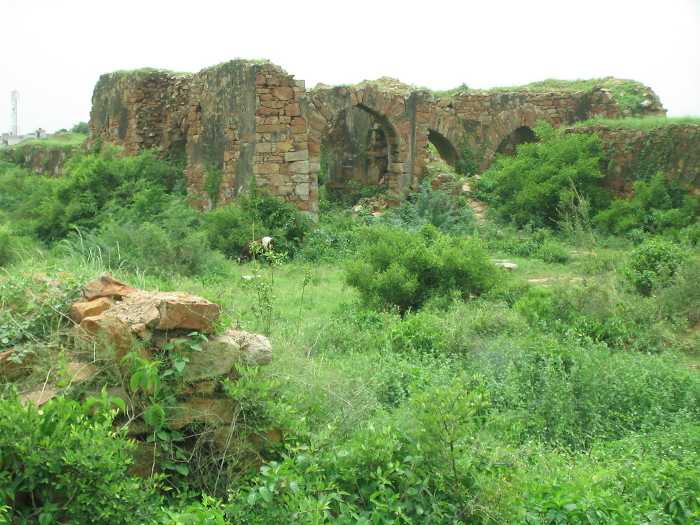FWP:
SETS == EXCLAMATION;
FILL-IN; INEXPRESSIBILITY
SPRINGTIME: {13,2}
What a spectacular riff on greenness and bahaar ! A number of imagery patterns are here deftly made to converge. In the first line, why are the door and walls of the grief-chamber a verdant meadow? Here are some possible reasons:
=Because the grief-chamber is constantly wet with tears. Thus its walls and door are slowly disintegrating, covered with a blanket of greenish molds and moss and saltwater-loving weeds like a rocky seashore.
=Because the lover's tear-floods have carried away the walls and door completely. In their place is now an open, grassy meadow that is charmingly green in the spring. (The lover's floods of tears are sufficient to wash away whole cities, as we see in {111,16}.)
=Because the lover totally neglects his house, and never repairs any gaps or cracks. By now, years of rains have crumbled it away, and its roof has collapsed. Thus the sun shines right in, and the rubble of walls and doors is now covered with grass and spring verdure.
=Because the lover never had any grief-chamber in the first place except the wilderness-- its every door and wall has always been made out of wilderness. (Compare {18,3} and {127,2}.) Naturally, this non-house made of open ground looks its best in the spring.
But the magic-show of multiple possibilities is far from over. For, in the second line, why is this state of affairs a bahaar ?
=Because it's 'springtime', the season that brings out all the greenery in its most charming and flourishing state.
=Because the greenness of plants covering the desolate ruins of the house is all the 'flourishingness' that this grief-chamber will ever know.
=Because the green verdure of wild nature where the walls and doors used to be (or never were) is actually a 'fine landscape' full of 'enjoyment' (see the definition of bahaar above) for the contemplative nature-lover.
=Because this desolation is a source of (melancholy?) pride to the lover, who sees in it the 'glory' or 'prime' of his passion.
How elegantly the inshaa))iyah structure of the second line has contrived to contain all these possibilities! The inexpressibility trope ('don't ask!') serves the poet well-- it admits of multiple possible reasons for not asking. Don't ask because the truth is too awful to be endured-- or too ineffably grand to be put into words; don't ask because you probably already know; don't ask because the speaker is not able or willing (for one or more of many possible reasons) to tell you.
Grammatically, the second line could apply either to the
grief-chamber, or to the owner of the grief-chamber, which further encourages
multiple and metaphorical readings. Ultimately, the imagery in this verse is so multivalent that the interpretation really involves a sort of sequential 'fill-in' process of choices we are left to make for ourselves.

Nazm:
He says, the spring harvest of my grief-chamber is that door and walls have become verdant. Now one ought to imagine, in what state grass grows up on the walls of a house. From lying neglected for a long time, ruined by the rains of year after year; from the unchecked effects of rain and sun on the walls. When at some time the grass grows so tall that it begins to wave in the breeze, then when there would be such a vehement/calamitous [aafat kii] springtime, then in the fall what difficulties would there not be? (138)
== Nazm page 138